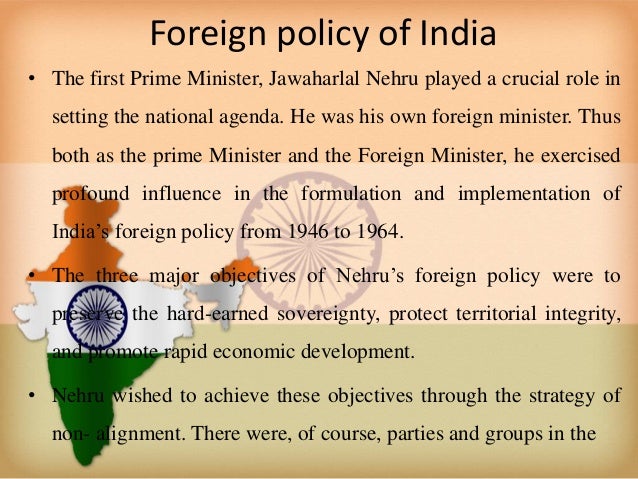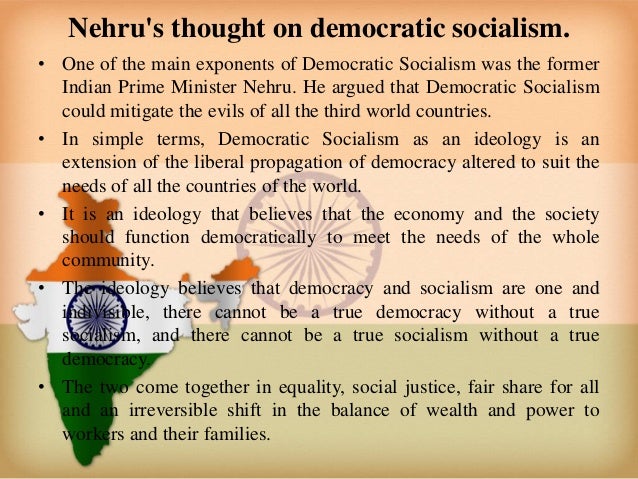Nehru Contribution in Making of modern India
Relevance: Mains: G.S paper I: The Freedom Struggle – its various stages and important contributors /contributions from different parts of the country. & G.S paper IV: lives and teachings of great leaders, reformers and administrators;
INTRODUCTION


Pandit Jawaharlal Nehru was a liberal democrat with an accommodative and liberal worldview. He inherited a divided nation with multiple wounds; some contemporary like the Partition and some civilisational like caste. He tried to heal them to best of his capacity.
His vision was welded in modernity influenced by the West but he did not push it down the throats of millions of Indians. He built a strong foundation for democracy. He ensured that India remained open to global influences.
Unlike the Soviet Union and Eastern Block, Nehru did not shut India to the world. He ensured that India did not remain insular after Partition. He built institutions for the study of sciences to development of cottage industry. He built them and allowed them to be free.
Nehru ensured that India remained pluralistic despite the fact that the word secular was not enshrined in the Constitution.

Nehru allowed his cabinet colleagues, such as Sardar Patel and Abul Kalam Azad to do the job they were intended to do. He was the prime minister but never suffocated or trampled the institutions he built.
He ensured that principles on which India’s nascent democracy rested were treated well. Unlike many South East Asian, African states or neighbouring Pakistan, Nehru built foundations of a pluralist republic and saw to it that democracy survives when the world was not giving us a decade both as democracy and a nation.
He ensured that India remained pluralistic despite the fact that the word secular was not enshrined in the Constitution. Today, political rights are considered given. During his tenure, they were recently hard-won from the British. He ensured that no one tampered with those values wrenched after years of struggle.
He was able to reform Hindu Personal law. Many of the rights enjoyed by Hindu women in India are a result of the position taken by Nehru. He resisted the conservatives – both within Congress and outside — who opposed the reforms on the ground that these went against the grain of Indian civilisation. He may get attacked today for not showing the same zeal for Muslims but at least 40 per cent of the Indian population was given the relief under new laws impacting women.
Nehru policy has been derided as effeminate and weak in contrast to Sardar Patel. It is the most erroneous comparison.
Nehru should be remembered for decent debates in Parliament and tradition of accommodating dissent. Nehru had his temper but it never allowed him to muzzle the Opposition.
Nehru could live with Rajendra Prasad whose views on certain issues were diametrically opposed to Nehru. It was for Nehru that despite strong Opposition, he never resorted to hard tactics which could have ruined the democratic parliamentary traditions of the nascent state.
Nehru’s legacy lies in the democratic institutions and other independent bodies which came into existence during his tenure.
Nehru policy has been derided as effeminate and weak in contrast to Sardar Patel. It is the most erroneous comparison. The contributions of founding father shouldn’t be seen one against another but as a cumulative and collaborative in nature.
Remembering Nehru does not belittle the contribution of Sardar Patel who welded different kingdoms and states into a nation. Patel’s strength worked for the Congress and not against Nehru. The credit goes to Nehru also that he allowed heavyweights like Patel and Kalam the freedom, space and respect they deserved in governance.
Beyond doubt, he inspired a fondness for literature in politics which was virtually abandoned by subsequent politicians barring Atal Bihari Vajpayee. He built the state but did not sow the seed of authoritarianism nor disrespect for institutions. Nehru worked at a time when political right was earned by millions through India’s freedom struggle. His credit lay in the fact that he preserved it and ensured that it gets enshrined the Constitution.
Nehru cannot be blamed for Indira’s mistakes. Nehru made his own which were primarily in defence and foreign relations. The debate can cut both ways. He took big decisions and made bold contributions, and also ended up making big and costly mistakes. It only proves one thing. Nehru was a mortal and not a God.
Nehru should be remembered for what India is today in terms of the robust democratic institutions he left.
Nehru should be remembered for what India is today in terms of the robust democratic institutions he left. He can be appraised for his role in inadequate defence planning which ultimately led to a humiliating defeat of India by China. Nehru for all said and done was a thinker and a Democrat.
Nehru for building an India that kept itself open to the outside world. He did not build an insular and intensively chauvinistic India. He built a patriotic India. He wanted a modern India steeped in the tradition of modern enlightenment. He was a product of his time and ended up as an excellent specimen of it.
For mos, Articles, News & Views Join our Telegram Channel.re such note
Click the link below to see the details about the UPSC –Civils courses offered by Triumph IAS. https://triumphias.com/pages-all-courses.php


Ciao Thanks in support of sharing such a good opinion, piece of writing is pleasant, thats why i have read it entirely. many thanks